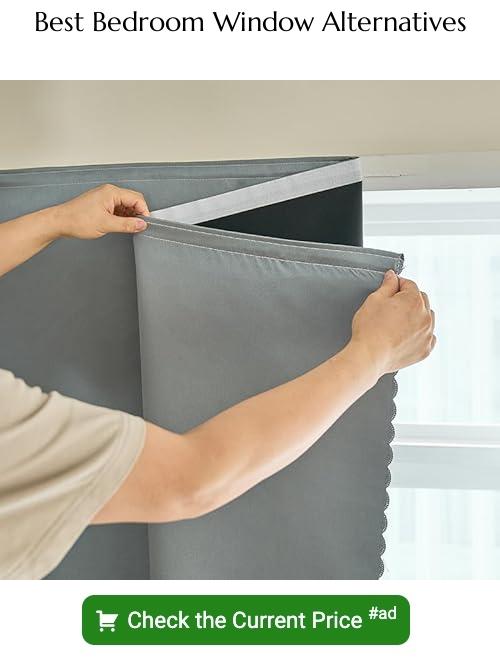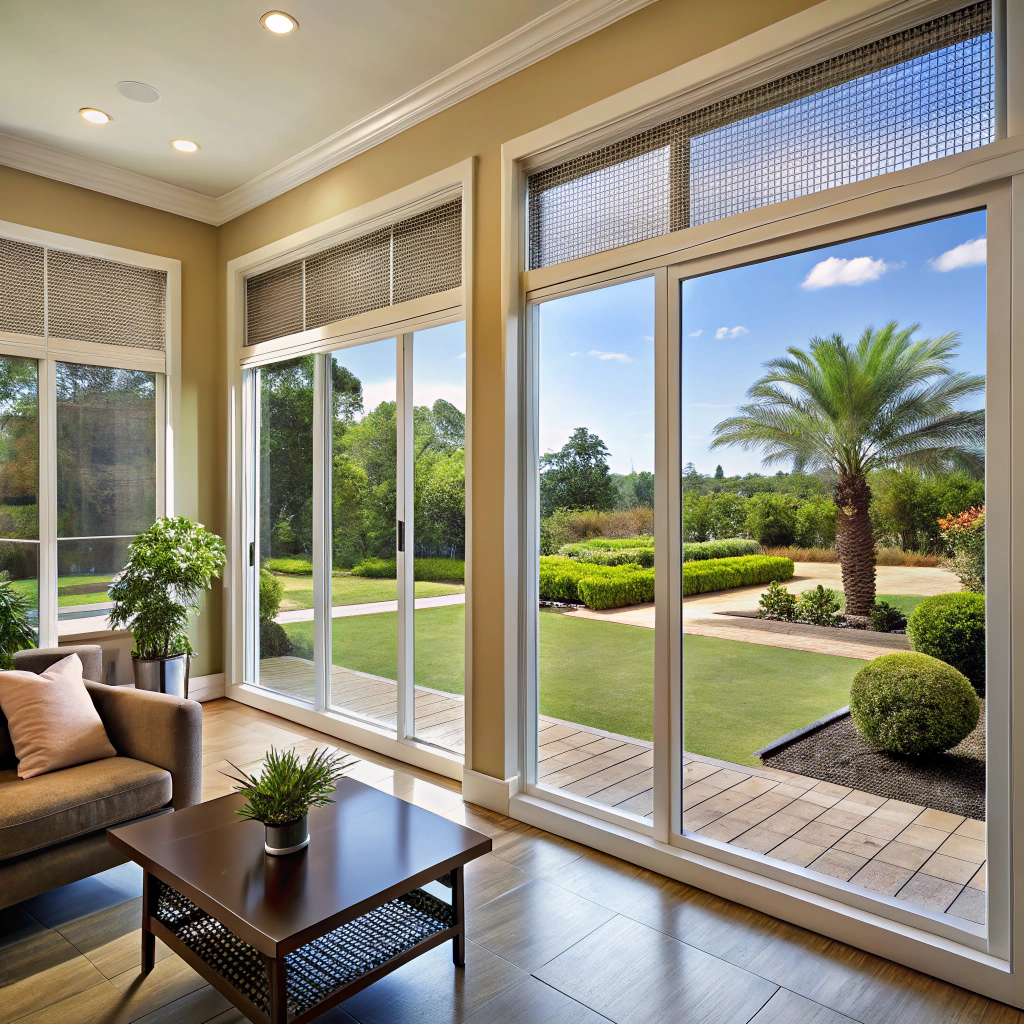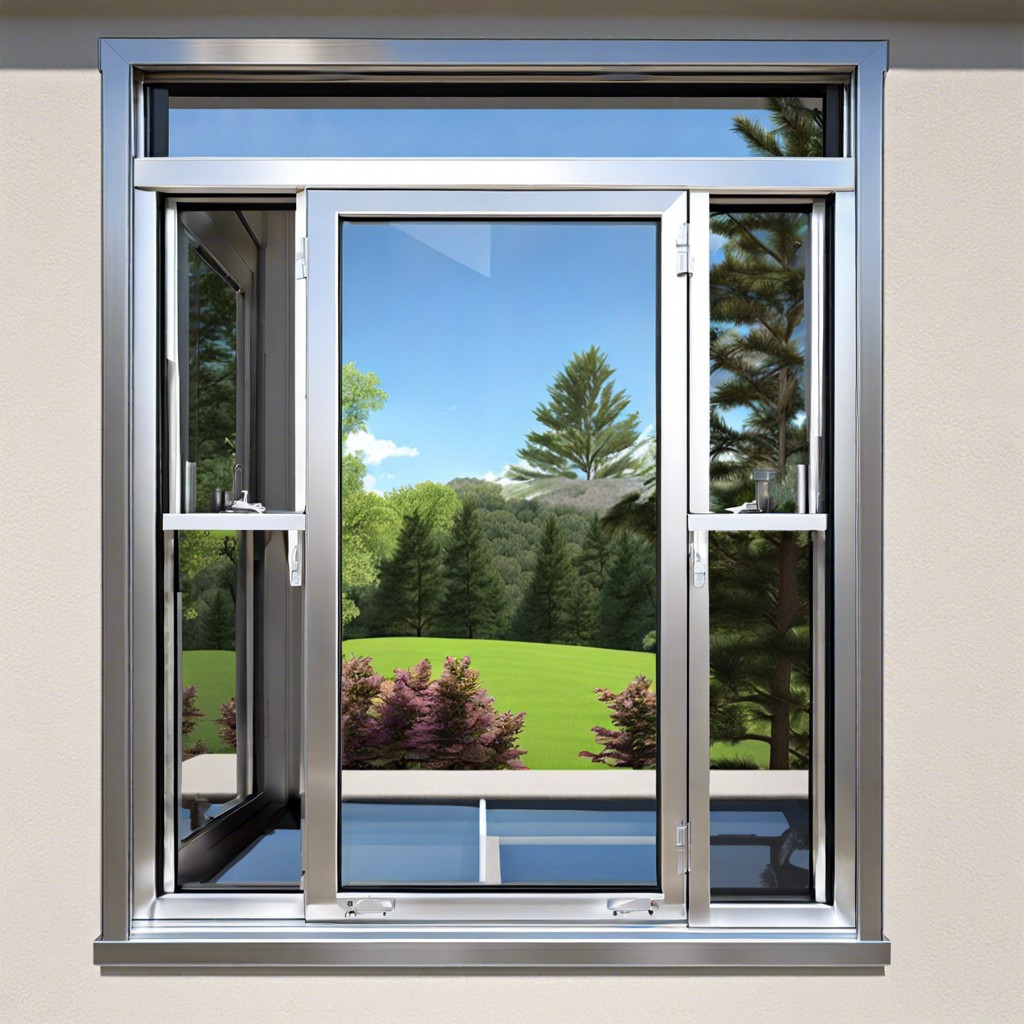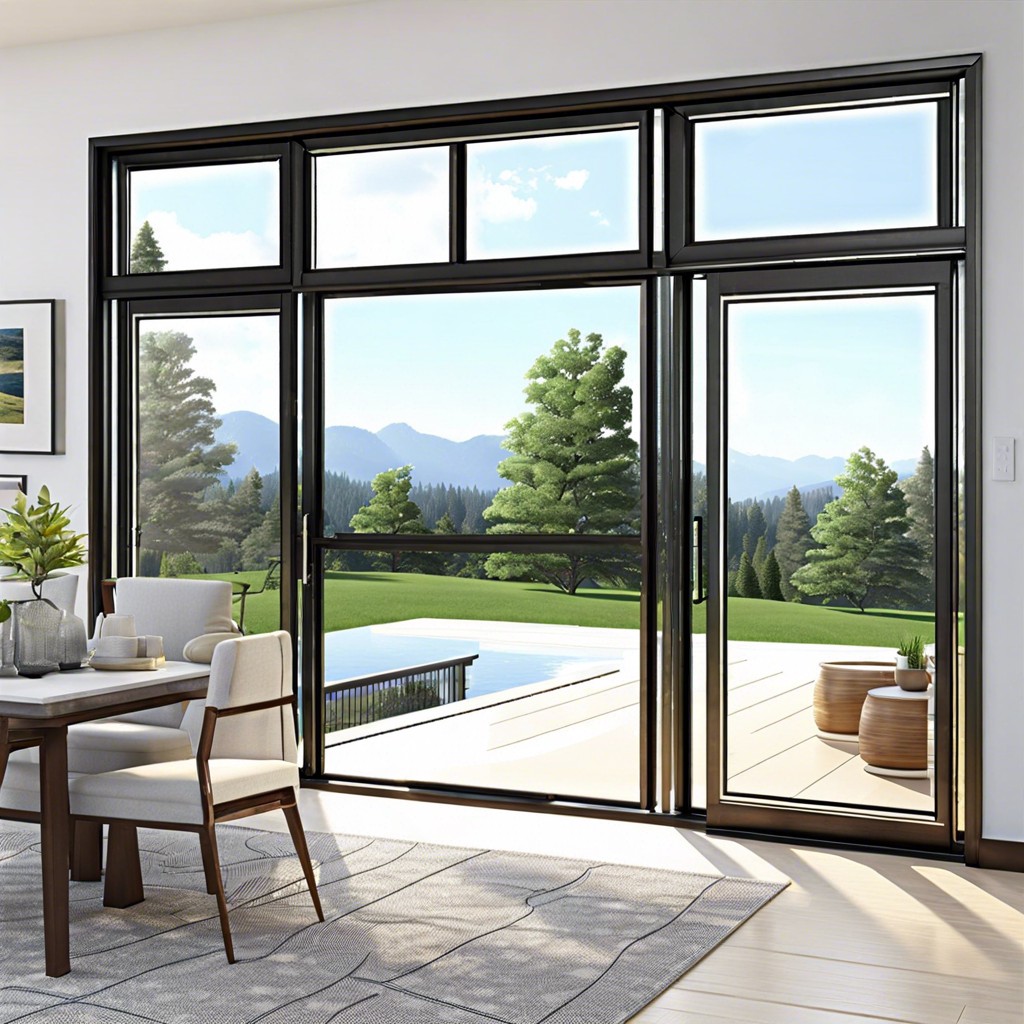Explore the various reasons and benefits behind having a window in your bedroom as we delve into this essential aspect of room design.
Welcome to my blog, where we talk about all things windows! Today’s topic is a question that many homeowners have asked themselves at some point: does a bedroom need a window? It may seem like a simple question, but the answer isn’t always straightforward. As an expert in the window industry, I’m here to provide you with accurate and informative information on this topic.
So whether you’re planning on building a new home or renovating your current one, keep reading to find out if your bedroom needs a window and why it’s important for both safety and comfort.
Key takeaways:
- Natural light benefits sleep, mood, and health.
- Windows provide ventilation and improve air quality.
- Building codes require windows for safety and escape routes.
- Natural light improves mood, productivity, and sleep quality.
- Windowless bedrooms can be addressed with alternative light sources and decor techniques.
Importance of Natural Light
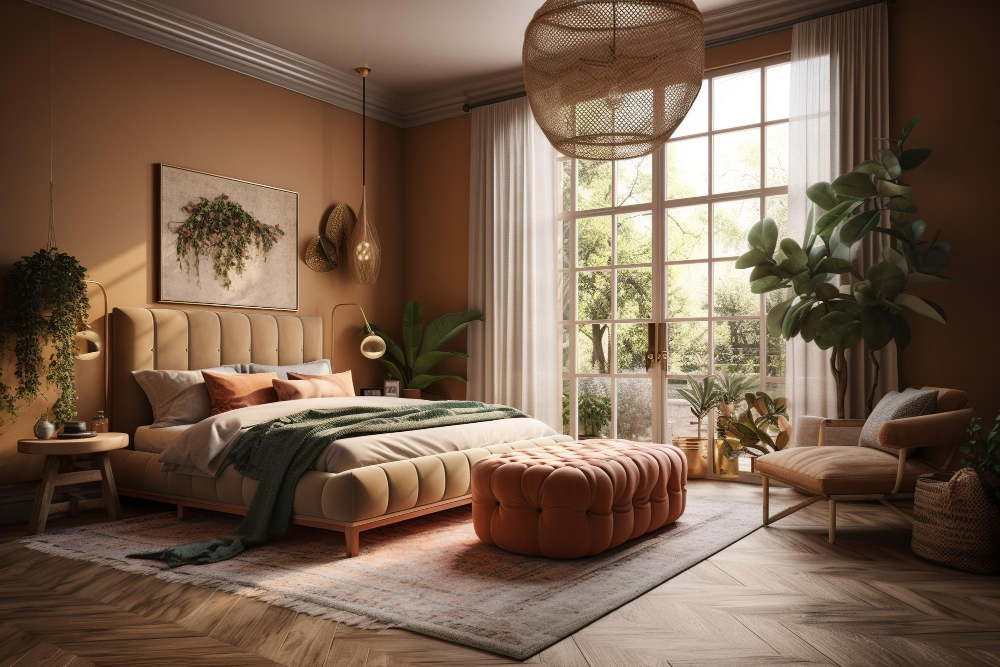
Natural light is an essential aspect of any room, and the bedroom is no exception. It not only brightens up space but also has numerous benefits for our health and well-being.
Exposure to natural light helps regulate our circadian rhythm, which controls our sleep-wake cycle. This means that having a window in your bedroom can help you wake up feeling refreshed and energized in the morning while promoting better sleep at night.
Moreover, natural light has been shown to improve mood by increasing serotonin levels in the brain. It’s also an excellent source of vitamin D, which plays a crucial role in maintaining healthy bones and immune system function.
In addition to its health benefits, natural light can make your bedroom feel more spacious and inviting by creating an illusion of depth that artificial lighting cannot replicate fully.
Ventilation and Air Quality
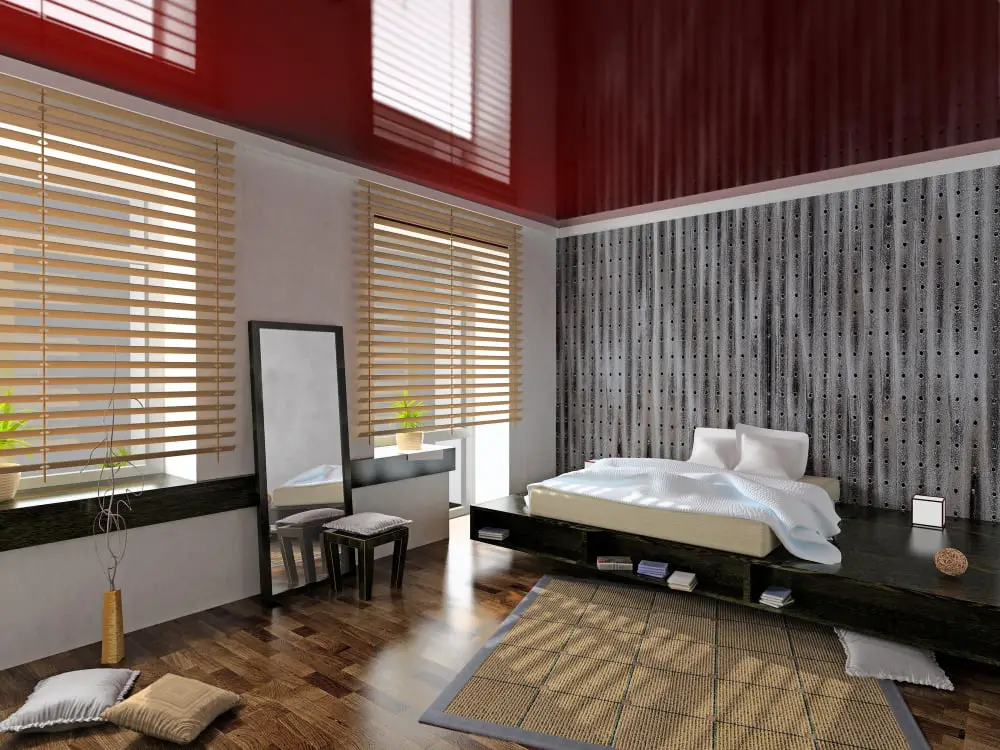
Without adequate airflow, a room can quickly become stuffy and uncomfortable. This is especially true for bedrooms where we spend a significant amount of time sleeping each night.
A window provides natural ventilation by allowing fresh air to circulate into the room while pushing stale air out. This exchange of indoor and outdoor air helps regulate temperature and humidity levels, which are essential factors in creating a comfortable sleep environment.
In addition to improving comfort levels, proper ventilation also has health benefits. Poor indoor air quality can lead to respiratory problems such as allergies or asthma symptoms that may affect your sleep quality negatively.
Building Codes and Regulations

When it comes to bedroom windows, there are specific requirements that must be met for a room to be considered habitable. In most regions, building codes require that every bedroom has at least one window or exterior door opening for emergency escape and rescue purposes.
The size of the window is also regulated by local authorities. The minimum size requirement varies depending on where you live but generally ranges from 5-7 square feet with no dimension less than 20 inches wide or high.
It’s important to note that these regulations aren’t just arbitrary rules; they’re designed with your safety in mind. A properly sized window can provide an easy exit route during emergencies like fires or other disasters when time is critical.
Having a well-placed bedroom window can improve air quality by allowing fresh air into the room while removing stale indoor air pollutants such as carbon dioxide and volatile organic compounds (VOCs).
So if you’re planning on renovating your home or building a new one, make sure you consult local building codes before making any decisions about your bedroom windows’ design and placement.
Psychological Benefits of Windows

Natural light has been shown to improve mood, increase productivity and reduce stress levels. Exposure to sunlight helps regulate our circadian rhythm, which is essential for maintaining healthy sleep patterns.
Studies have also found that people who spend more time in rooms with windows tend to be happier and experience less anxiety than those without access to natural light. This is because sunlight triggers the release of serotonin, a hormone that promotes feelings of happiness and well-being.
Furthermore, having a view outside can provide an escape from the stresses of everyday life by offering glimpses into nature or cityscapes. It’s no wonder why many hotels invest heavily in providing guests with stunning views from their bedrooms!
Circadian Rhythm and Sleep Quality
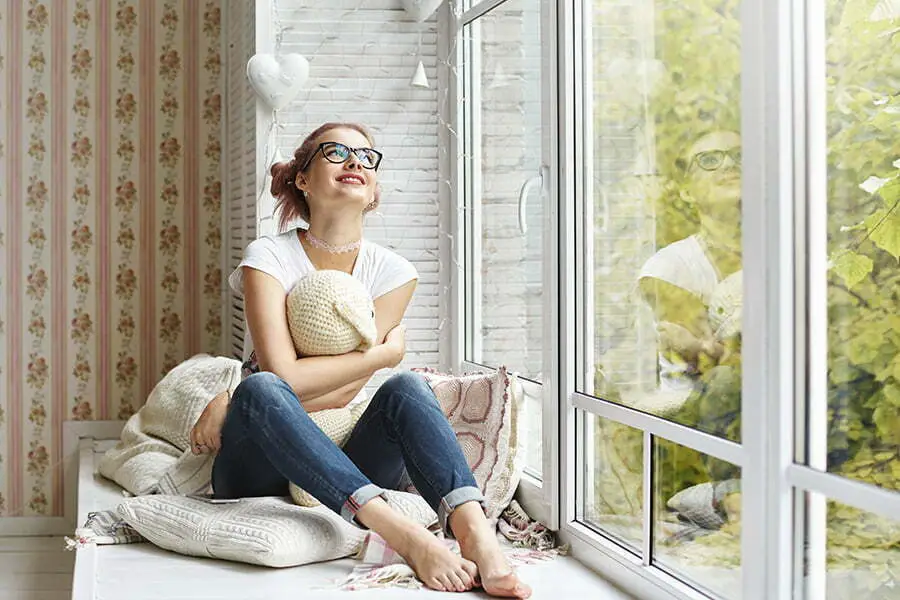
It’s influenced by external factors such as light and darkness, which can affect our body’s production of melatonin, a hormone that helps us fall asleep. Having a window in your bedroom can help regulate your circadian rhythm by allowing natural light to enter during the day and darkness at night.
Studies have shown that exposure to natural light during the day improves sleep quality at night. In contrast, artificial lighting from electronic devices or indoor lighting may disrupt our circadian rhythms and interfere with restful sleep.
Emergency Escape Routes
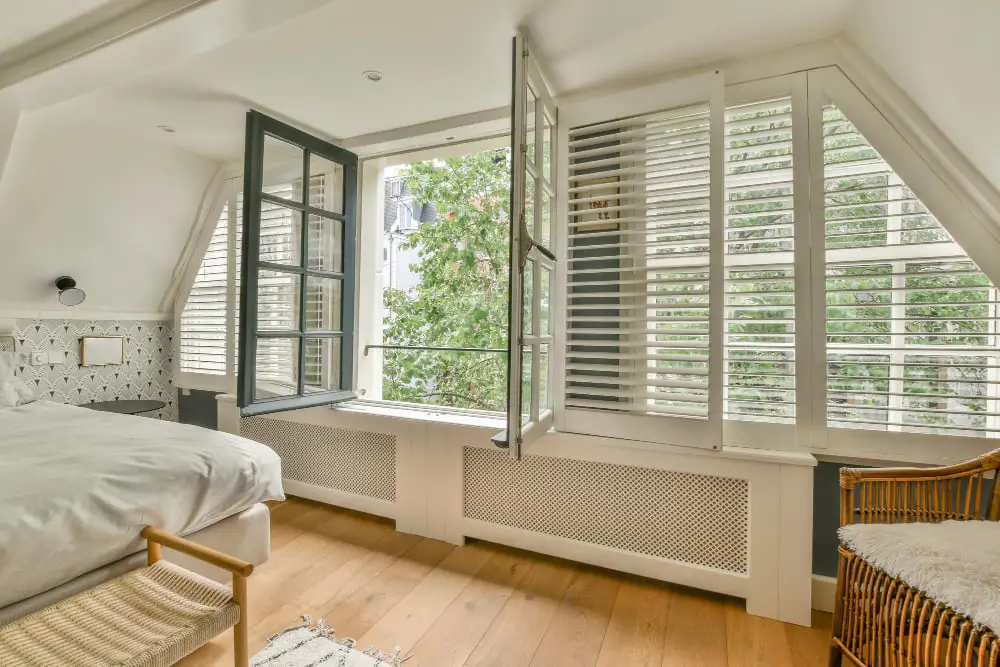
In case of fire or any other emergency, having an accessible and safe exit point can be life-saving. Building codes require that all bedrooms have at least one window that meets specific size requirements to allow occupants to escape in case of an emergency.
It’s crucial to ensure that your bedroom windows are easily operable and not obstructed by furniture or other objects. It’s essential to have a plan in place with your family members on how you will evacuate the house through these windows if necessary.
Having properly sized and functioning windows in your bedroom can provide peace of mind knowing you have an alternative exit route during emergencies.
Legal Requirements for Bedroom Windows
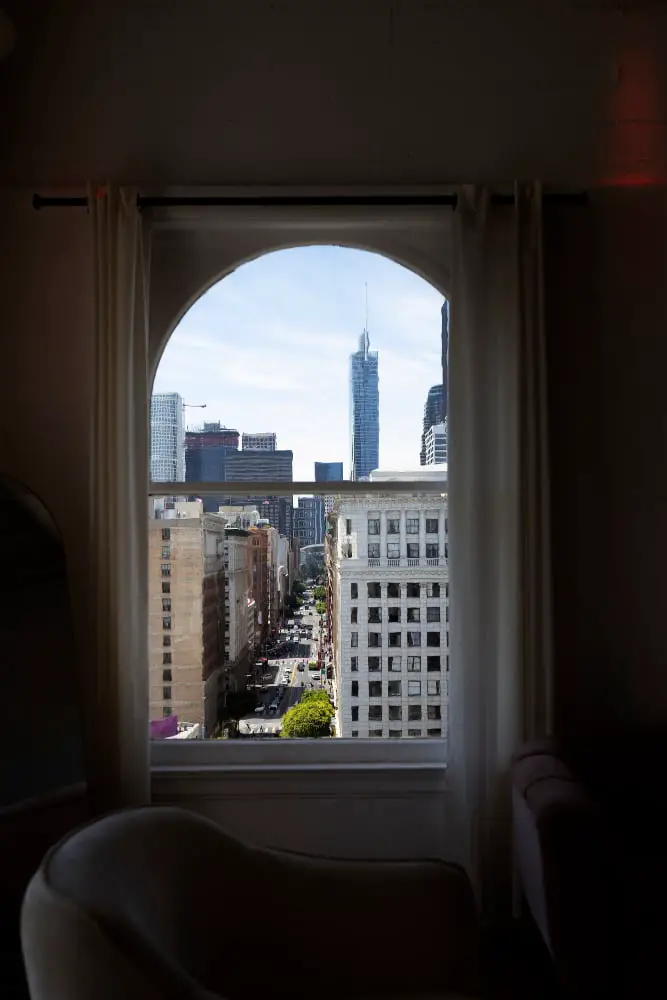
These regulations vary depending on the state or country you live in, but they all have one thing in common: safety. In case of an emergency such as a fire or other disaster, having a window in your bedroom can be crucial for escape.
In the United States, building codes require that every sleeping room has at least one operable window with a minimum clear opening of 5.7 square feet and no less than 24 inches high and 20 inches wide. This is known as an egress window and is designed to provide occupants with a safe exit route during emergencies.
It’s important to note that these regulations apply not only when constructing new homes but also when renovating existing ones. Failure to comply with these laws could result in hefty fines or even legal action if someone gets injured due to non-compliance.
Regional Variations – Bedroom Window Laws

For example, in the United States, most states require that bedrooms have at least one window for emergency escape purposes. The size of the window and its location within the room may also be regulated by local building codes.
It’s important to research your region’s laws before designing or renovating your home to ensure compliance with these regulations. Failure to comply with these requirements can result in fines or even legal action.
However, it’s worth noting that regional variations exist when it comes to bedroom windows’ legal requirements worldwide. In some countries like Japan and China where space is limited; many homes do not feature windows in their bedrooms due to cultural reasons rather than safety concerns.
Windowless Bedroom Solutions
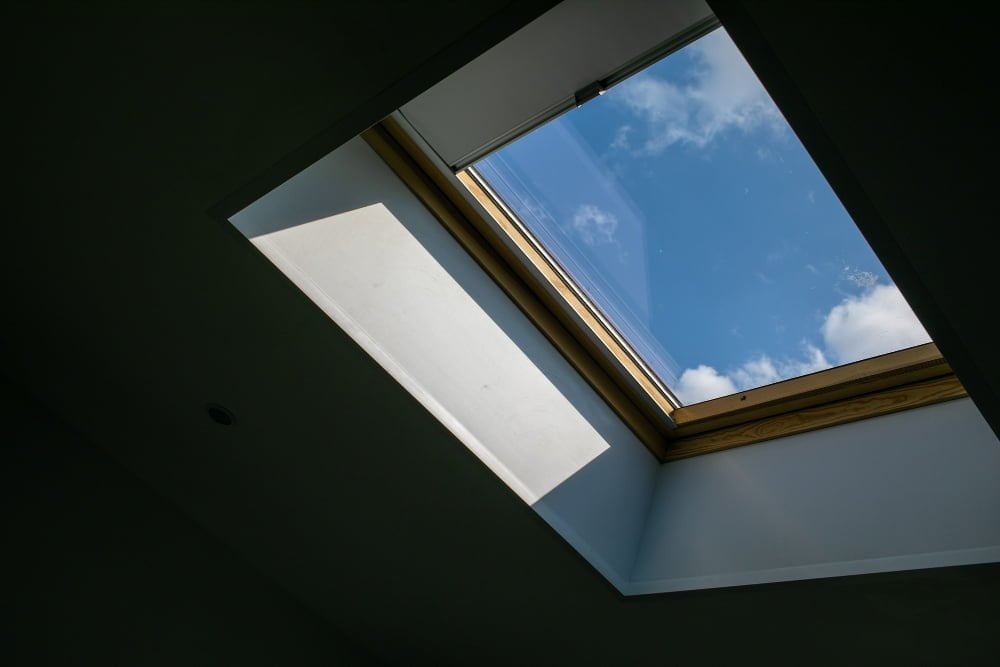
One solution is to install skylights or solar tubes on the roof of your home. These can provide ample amounts of sunlight during the day and even moonlight at night, creating a cozy atmosphere for sleeping.
Another option is to use artificial lighting that mimics natural light as closely as possible. This includes full-spectrum bulbs that simulate daylight or smart LED lights with adjustable color temperatures.
You can also consider using mirrors strategically placed around the room to reflect any available light sources, making it feel brighter and more spacious than it actually is.
Lastly, if you have no other choice but to live in a windowless bedroom due to building codes or regulations, make sure you invest in high-quality air purifiers and dehumidifiers for proper ventilation. It’s crucial for maintaining good indoor air quality since bedrooms tend to accumulate dust mites and allergens over time.
Alternative Light Sources
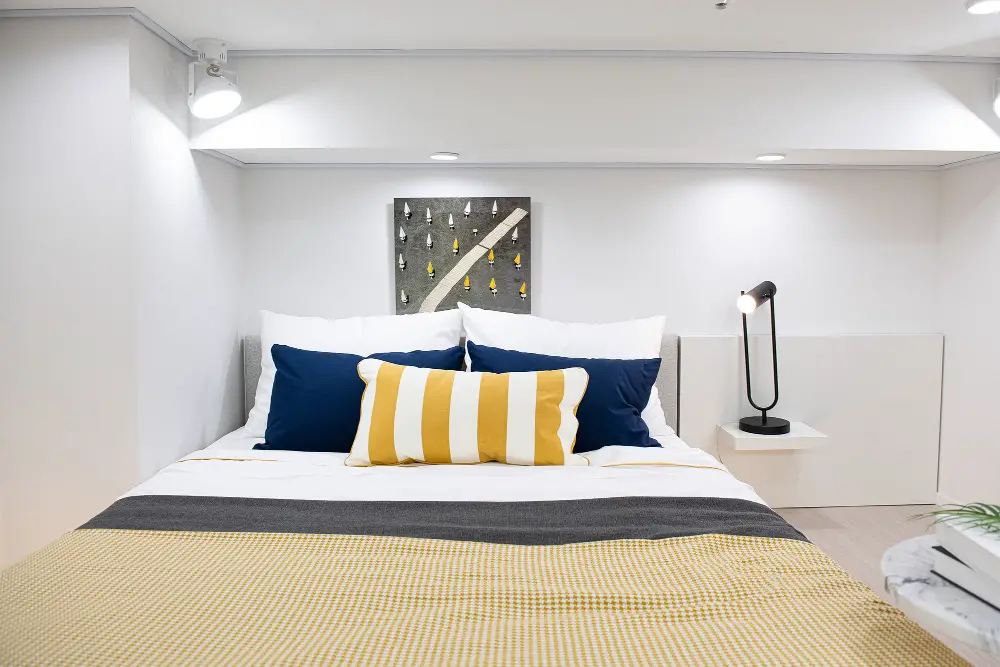
In such cases, alternative light sources can be used to create a comfortable and well-lit space. There are several options available that can mimic natural daylight and provide adequate lighting for your bedroom.
One popular option is LED lights that simulate sunlight. These lights come in various color temperatures ranging from warm white to cool white, which can help regulate your circadian rhythm and improve sleep quality.
Another alternative is full-spectrum bulbs that emit light similar to natural daylight. They’re ideal for people who suffer from seasonal affective disorder (SAD) or those who spend most of their time indoors.
Task lighting such as bedside lamps or wall sconces also provides localized illumination without being too harsh on the eyes at night-time when you want less brightening around you while sleeping.
While nothing beats the benefits of having a window in your bedroom – including fresh air circulation – there are alternatives available if this isn’t an option due to building codes or other constraints like privacy concerns etcetera.
Room Ambience and Design

A well-placed window can enhance natural light, create an illusion of space, and provide stunning views that add character to your bedroom. The type and style of windows you choose also play a crucial role in determining the mood you want to set for your room.
For instance, large picture windows are perfect for creating an open feel while letting in plenty of natural light. Bay or bow windows offer more floor space while providing panoramic views outside.
On the other hand, smaller casement or awning-style windows are ideal if privacy is a concern.
When it comes to designing around bedroom windows, there’s no one-size-fits-all approach as every homeowner has their unique preferences and tastes. However, some general tips include choosing curtains or blinds that complement existing decor elements such as bedding sets or wall colors.
Decorating A Windowless Bedroom
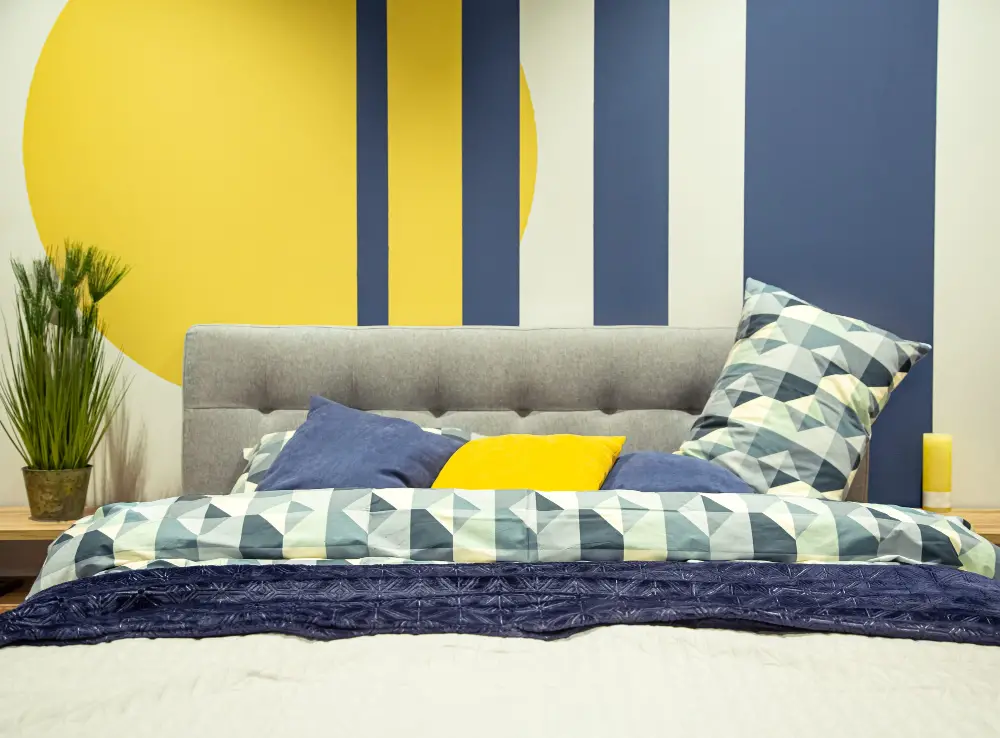
However, with the right decorating techniques, you can make your room feel cozy and welcoming. One of the best ways to decorate a windowless bedroom is by using light colors on walls and furniture.
Lighter shades reflect more light than darker ones, making your room appear brighter.
Another way to add brightness is by incorporating mirrors into your decor. Mirrors reflect natural or artificial light around the room creating an illusion of depth that makes small spaces look larger.
You may also want to consider adding some plants or flowers in vases as they bring life into any space while purifying air quality at night when photosynthesis stops. Lighting plays a crucial role in setting up ambiance for any given area; therefore investing in good quality lamps will help brighten up dark corners while providing warm illumination throughout the night.
Size and Space Considerations for Bedrooms

The size of your room will determine the type and number of windows you can install. For instance, if you have a small bedroom, installing large windows may not be practical as they could take up too much wall space or make the room feel cramped.
On the other hand, larger bedrooms with high ceilings can benefit from bigger windows that allow more natural light in and provide better ventilation. It’s also important to consider how many people will be using the room when deciding on window placement.
If you’re working with limited space or want to maximize your floor area for furniture placement, smaller-sized windows like casement or awning styles might work best for your needs. These types of windows offer excellent energy efficiency while still providing ample natural light into any sized bedroom.
Ceiling Height and Comfort in Bedrooms
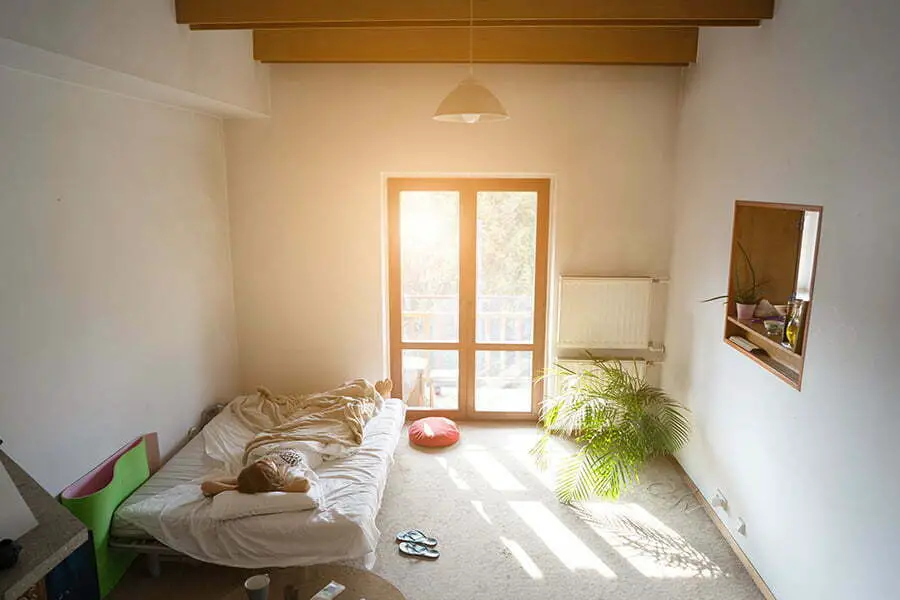
A room with low ceilings can feel cramped and stuffy, while high ceilings create a sense of spaciousness and airiness. The ideal ceiling height for a bedroom should be at least 8 feet or higher, as this allows for proper ventilation and air circulation.
In addition to providing better airflow, high ceilings also offer other benefits that contribute to overall comfort in the bedroom. They allow more natural light into the space which helps regulate your circadian rhythm – your body’s internal clock that regulates sleep-wake cycles.
Moreover, tall walls provide ample space for hanging artwork or installing shelves without making the room feel cluttered or cramped. High-ceilinged rooms are also great if you want to add statement lighting fixtures like chandeliers or pendant lights.
However, it’s worth noting that very high ceilings may not always be practical in smaller bedrooms as they can make heating/cooling less efficient by creating extra volume of air above head level where people don’t live most of their time during sleep hours.
Window Treatments for Privacy
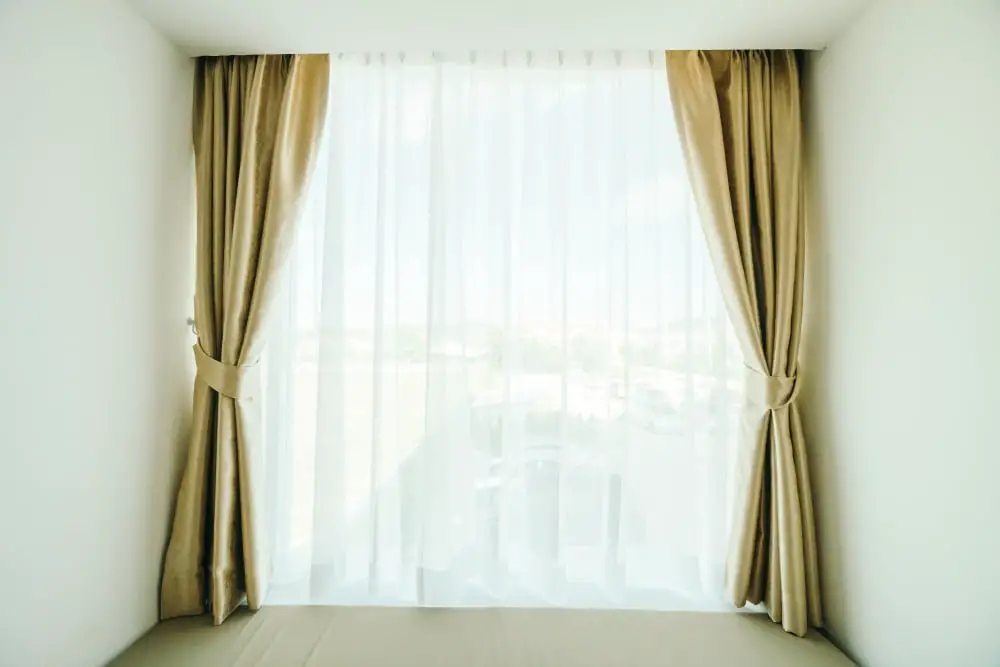
There are several options available when it comes to window treatments for bedrooms, including curtains, blinds, shades or shutters. These options not only provide privacy but also add an aesthetic appeal to your room.
Curtains are one of the most popular choices for bedroom windows as they come in various styles and fabrics that can complement any decor style. They offer complete coverage when closed and allow natural light into your room during the day.
Blinds are another option that provides excellent control over light levels while still maintaining privacy. They come in different materials such as wood or vinyl with varying degrees of opacity depending on how much light you want to let into your space.
Shades offer similar benefits as blinds but tend to be made from softer materials like fabric or bamboo which gives them a more relaxed feel compared to their rigid counterparts.
Shutters provide both insulation against noise pollution and temperature changes while offering maximum control over lighting conditions within the room.
Energy Efficiency Considerations

Windows can be a significant source of heat loss during the winter months and can also let in unwanted heat during summer months. This means that if you do decide to have windows installed, you’ll want to make sure they are energy-efficient.
One way to ensure that your windows are energy-efficient is by choosing double-paned glass with low-emissivity coatings. These types of windows help reduce heat transfer between the inside and outside of your home, which ultimately leads to lower heating and cooling costs.
Another consideration when it comes to energy efficiency is proper installation. Even high-quality windows won’t perform well if they’re not installed correctly.
Make sure that whoever installs your bedroom window follows best practices for sealing around the frame so as not allow drafts or air leaks.
Noise Reduction and Soundproofing

If you live in a noisy area, such as near a busy street or airport, having windows that can block out noise is crucial for getting quality sleep. If you have noisy neighbors or family members who stay up late watching TV or playing music, soundproofing your bedroom can help reduce the amount of noise that enters the room.
There are several ways to achieve noise reduction and soundproofing in bedrooms without windows. One option is to install acoustic panels on the walls and ceiling of your room.
These panels absorb sounds rather than reflecting them back into space like traditional wall materials do.
Another option is using heavy curtains with thick fabric material which will help dampen outside noises from entering through any gaps around doors/windows while also providing privacy during daytime hours when natural light isn’t available.
Lastly, adding carpets/rugs on floors will also aid in reducing unwanted sounds by absorbing vibrations caused by footsteps etc., making it easier for people living below/above each other’s apartments/houses where there may be shared walls/floors/ceilings between units.
Window Styles and Materials
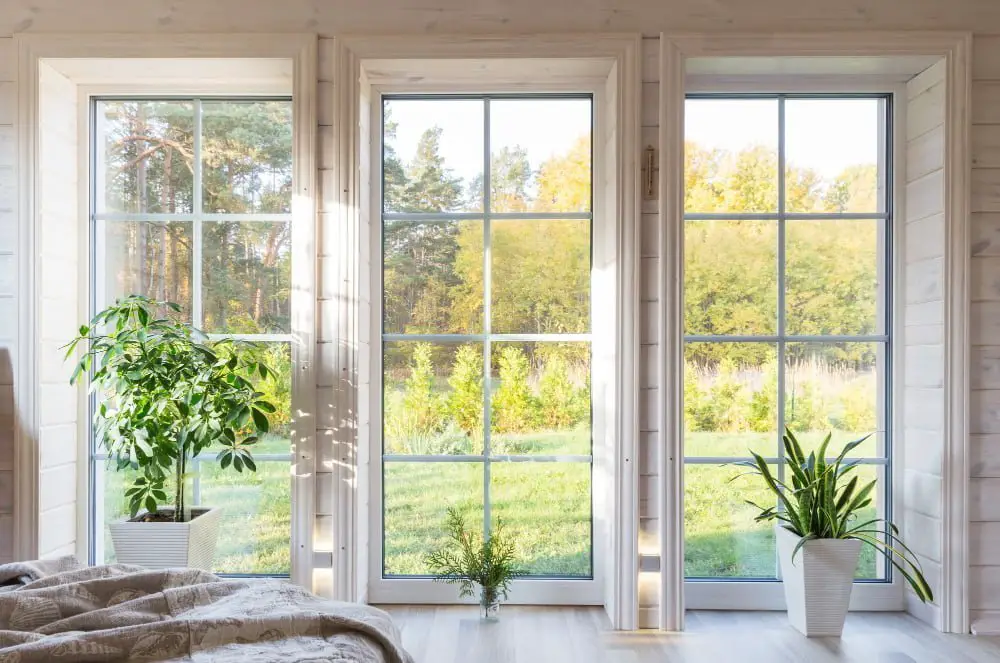
The most common types of windows include casement, double-hung, sliding, and awning windows. Each style has its own unique features that can affect the amount of natural light and ventilation in your room.
In addition to style considerations, you’ll also want to think about what material is best suited for your needs. Vinyl is a popular choice due to its affordability and low maintenance requirements.
Wood frames offer an attractive aesthetic but require more upkeep than other materials.
Another factor worth considering when selecting window styles or materials is energy efficiency. Energy-efficient windows can help reduce heating costs during colder months while keeping rooms cooler in warmer weather.
Pros and Cons of Windowless Bedrooms
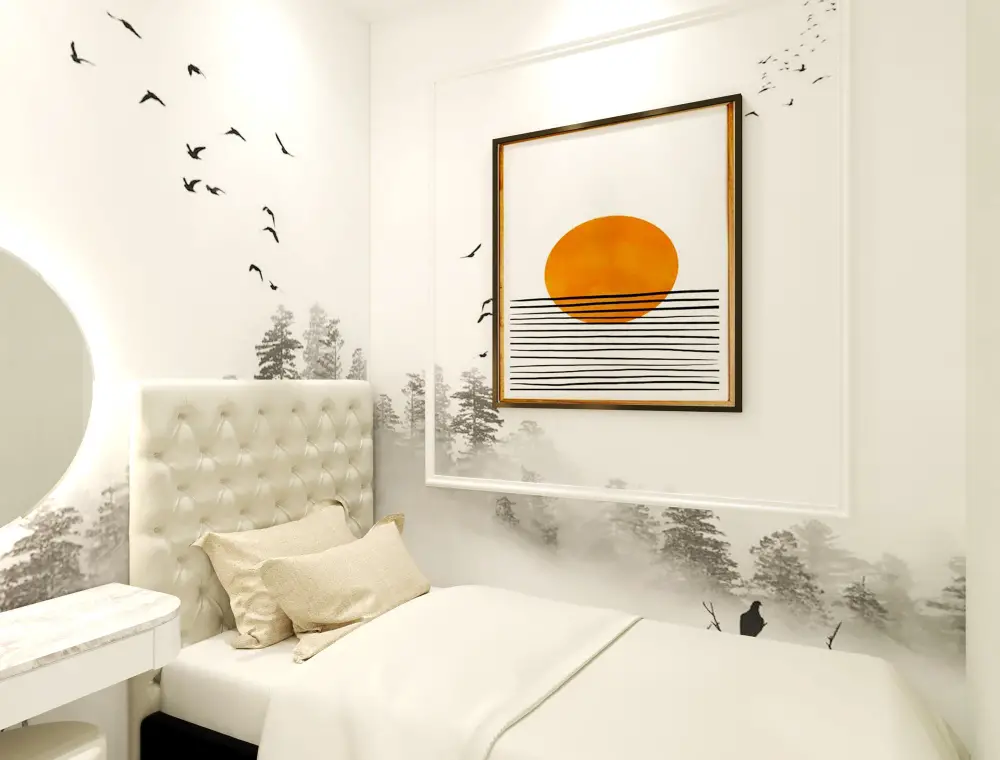
In such cases, you might have to consider a windowless bedroom. Here are some pros and cons of having a room without windows:
Pros:
- Better privacy: A windowless room offers complete privacy from the outside world.
- More wall space: Without windows taking up valuable wall space, you can use that area for storage or decor.
- Reduced noise pollution: Windows can let in unwanted noise from outside sources like traffic or neighbors.
Cons:
- Poor ventilation and air quality: Without proper airflow through an openable window, the air quality inside your bedroom could suffer.
- Lack of natural light: Natural light has been shown to improve mood and overall well-being. A lack of sunlight exposure could lead to vitamin D deficiency and other health issues.
- Safety concerns during emergencies – In case of fire accidents or any emergency situation where quick escape is necessary; bedrooms with no windows pose significant safety risks.
While there may be certain benefits to having a windowless bedroom such as increased privacy and more wall space for decoration purposes; it’s important not to overlook the potential drawbacks like poor ventilation/air quality issues along with safety concerns during emergencies.
The Bottom Line: Are Windows Necessary in Bedrooms?
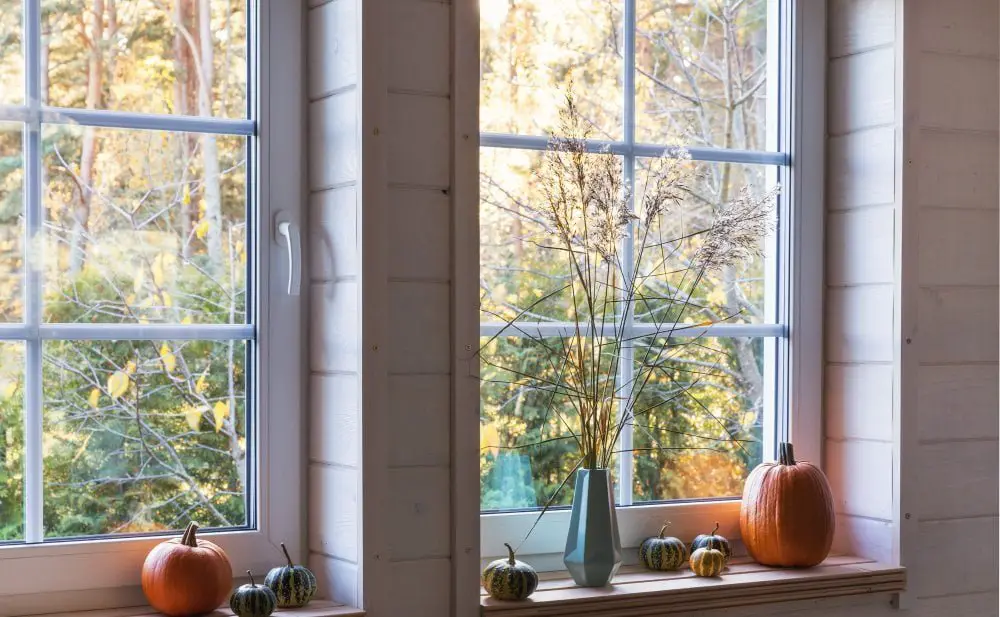
The answer is yes, windows are essential for bedrooms. Not only do they provide natural light and ventilation, but they also play a crucial role in safety and emergency situations.
Building codes require that all habitable rooms have at least one operable window or exterior door for emergency escape and rescue purposes. In case of fire or other emergencies, having an accessible exit can make all the difference between life and death.
Furthermore, windows allow fresh air to circulate into your room while removing stale air that could cause health problems such as allergies or respiratory issues. They also help regulate temperature by allowing heat to escape during hot summer months while keeping warmth inside during colder seasons.
In addition to these practical benefits, studies have shown that exposure to natural light has positive effects on our mental health by regulating our circadian rhythm which affects sleep quality among other things. So when designing your bedroom space whether new construction or renovation project consider incorporating windows not just as functional elements but also as design features with aesthetic appeal too!
FAQ
Can I have a bedroom with no window?
A bedroom must have at least one window or a second exterior door, as it needs two methods of egress; therefore, a bedroom cannot have no windows.
What technically makes a bedroom?
A bedroom technically requires at least 70 square feet of floor space with a minimum of 7 feet in one direction, and for multiple occupants, a minimum of 50 square feet per person.
What are the requirements for a bedroom in Wisconsin?
In Wisconsin, a bedroom must have two exits, one of which can be a window that meets the minimum requirements of 5.7 square feet opening area, 24 inches opening height, and 20 inches opening width.
Why are windows important in a bedroom?
Windows are important in a bedroom because they provide ventilation, allowing for better air quality and temperature regulation by exchanging stale air with fresh air, and potentially improving the window’s style and size.
What are the alternative sources of light and ventilation in a windowless bedroom?
Alternative sources of light and ventilation in a windowless bedroom include installing air vents, using artificial lighting, and incorporating air-purifying plants.
How can windowless bedrooms impact one’s mental and physical health?
Windowless bedrooms can impact one’s mental and physical health by potentially causing issues such as disrupted sleep patterns, reduced exposure to natural light, and a lack of ventilation, which may influence mood, productivity, and overall well-being.
Are there specific building codes that address bedroom windows and their dimensions?
Yes, specific building codes address bedroom windows and their dimensions to ensure proper safety and ventilation.
Recap
